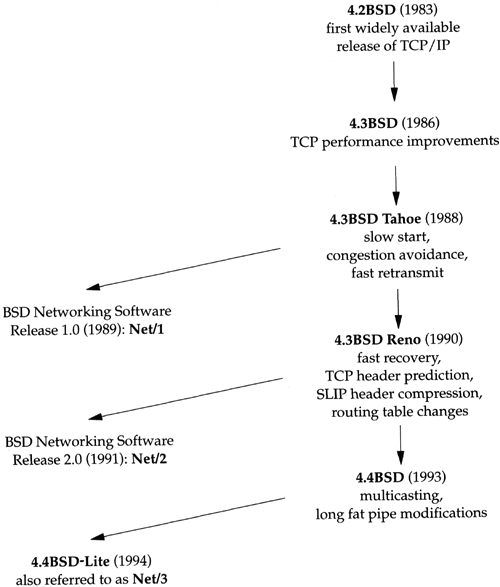1.14 Implementations
1.14 Implementations
The de facto standard for TCP/IP implementations is the one from the Computer Systems Research Group at the University of California at Berkeley. Historically this has been distributed with the 4.x BSD system (Berkeley Software Distribution), and with the "BSD Networking Releases." This source code has been the starting point for many other implementations.
Figure 1.10 shows a chronology of the various BSD releases, indicating the important TCP/IP features. The BSD Networking Releases shown on the left side are publicly available source code releases containing all of the networking code: both the protocols themselves and many of the applications and utilities (such as Telnet and FTP).
Figure 1.10. Various BSD releases with important TCP/IP features.

Throughout the text we'll use the term Berkeley-derived implementation to refer to vendor implementations such as SunOS 4.x, SVR4, and AIX 3.2 that were originally developed from the Berkeley sources. These implementations have much in common, often including the same bugs !
Much of the original research in the Internet is still being applied to the Berkeley system ” new congestion control algorithms (Section 21.7), multicasting (Section 12.4), "long fat pipe" modifications (Section 24.3), and the like.
EAN: 2147483647
Pages: 378